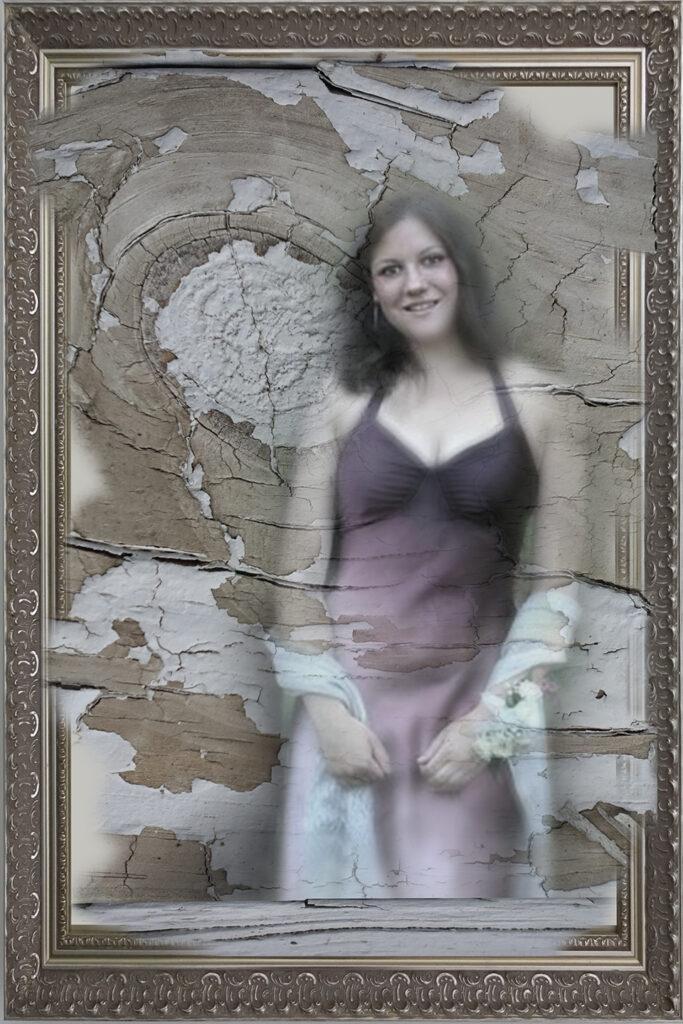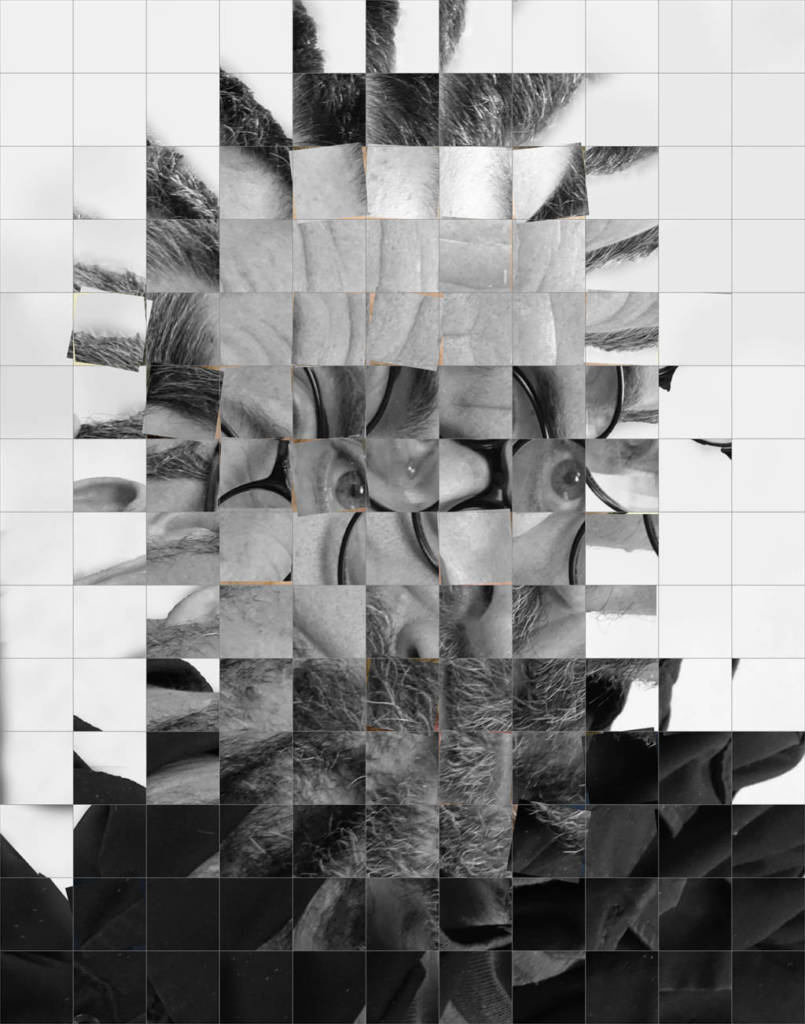Years ago I hated taking photographs. Having a camera in front of my eyes kept me from experiencing the world, I used to say, I couldn’t be present to what was around me if I was focusing through a camera. But now, with my digital Sony RX100 that fits in a pocket, I can capture so much I didn’t even realize was there. Its postage stamp-sized plastic chip holds a million memories in tiny thumbnail scenes. Memories, and sometimes surprises. I click, drag, and drop the tiny images from the chip into the Photoshop program on my computer where I can enlarge or erase, copy as-is, or change them. Then I spend hours remaking reality. In Photoshop there are intriguing “tools” to work with. Tools geared to fixing. A Patch Tool and a Path Selection Tool, a Dodge Tool and an Add Anchor Tool. A Magic Eraser and a Magic Wand … a Clone Stamp. And a Healing Brush.
One gray day in early March 2013, I pass an old abandoned home. I stop because I’d grown up across the street from a ‘haunted’ house, and as a curious kid I’d peeked into the clouded windows to find traces of former inhabitants. Even vacated, there remained a vague residue of the lives that came and went. This other empty house just outside Ithaca now captivates my imagination. Respectfully, I approach the threshold to snap pictures and consider how I might ‘shop a ghost-image of Marika onto its porch. But back home, I reconsider as I view the images in Photoshop. The house is beautiful in itself. It wears its own stories in chipped paint that reveals familiar patterns in the weathered wood underneath. There’s no need to imprint my own longings onto it. Two years after Marika’s death, I find I’m filled with a deeper regard for others’ hearts and homes that house memories of lost loved ones. Loss and grief do not belong only to me.
Sooner or later we all lose someone we love. Then, critically wounded, we wallow in hopeless despair, suffering regrets and guilt, fatigue, denial, depression, anger … all sorts of symptoms and phases of grief. And finally we scramble to adapt, to redefine our lives, and find our new selves amid the gutted remains of our broken hearts.
Why don’t we learn about death early on, like in grade school, I wonder? Why don’t they prepare us in high school for all the dying we’re going to be faced with in the course of our lives? We should know that the longer we live, the more people, pets, and plants will die before us, and that the deaths of the ones we love most are going to scour our hearts raw. Allowing ourselves to get slammed by death over and over again—is this the humanness of us? Watching the bereaved keen and crumple every time—is this godliness? And why aren’t we taught how to use all our pain and longing as a source of new strength?
To live on after loss is to hold on, and let go, and love again, all at the same time. There are no rules, no right or wrong ways to go about grieving. This whole grief thing is just our individual journeys or unique adaptations to loss, which may eventually lead to growth, but could alternatively wipe us out.
Before she died, Marika and I were in the middle of a great mother-daughter divide. She was almost out the door when cancer clobbered her. Us. After two years stuck together sallying through cancer, Marika was ready to move clear across the world to get away from me. And one day she would have come back. There would have been graduations, shopping trips for gowns, maybe a wedding … grandchildren. All the would-haves have disintegrated. Now I hold onto Marika’s memory and her words, and let go of her future. And the future I’d imagined for myself. But I will not let go of her. Her absence is a presence. Something still remains, and even without a physical presence there is still a relationship. I watch as it mellows with time.
And I discover almost daily that all around me there are others dealing with loss. Everybody’s dealing with something. Maybe the humanness is in recognizing this. Maybe the godliness is in our simply sitting with the brokenhearted, listening, and being a silent, compassionate, non-judgmental presence.


